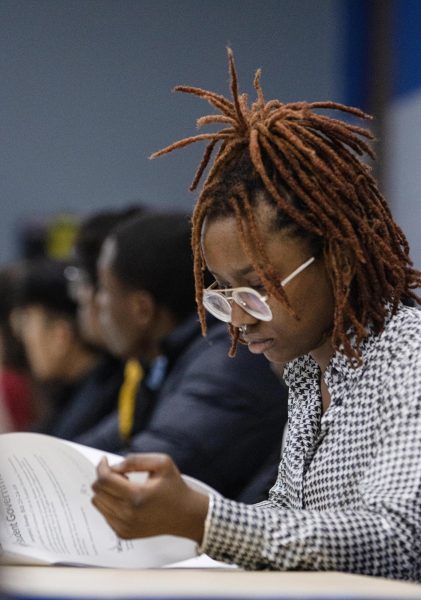
A revised version of the student government constitution was presented to the student senate at their general body meeting on March 6 featuring task reassignments and the removal of the judicial branch.
Student body president Nidhi Patel and speaker of the senate Madison Veatch, who jointly headed the constitution revision task force, gave the presentation outlining all the changes made.
The student senate did not vote on the constitution during its meeting, as the revised constitution will be added to the spring 2024 ballot and incorporated during fall 2024’s semester.
A new student government role was introduced in the amended constitution: the student trustee.
The student trustee is a student representative on the board of trustees, a responsibility that has until now been that of executive vice president August Biernbaum, a senior political science major. The student trustee will attend trustee meetings, participate in discussion and vote on matters that affect the university.
A significant change to the constitution includes the removal of the judicial branch, which has not been active at all since the last time the student constitution was amended. Duties of the judicial branch were largely delegated to various student government officers and faculty members.
Examples of such include that the evaluation of student government executive officers has now been delegated to the student government advisor, currently Ceci Brinker. Additionally, if a student government officer were to be removed from their role, they would appeal to the university vice president of student affairs.
The responsibilities of the student body president were workshopped largely. The student body president’s power and responsibility were reduced.
Previously, the constitution stated that the student body president may veto any action passed by the student senate with the sole exception of parliamentary procedure. The amended constitution would further limit their power by not allowing vetoes of RSO charters or resolutions.
Responsibilities that were completely removed from the constitution were meetings with judicial branch officials, holding a review of the speaker of the senate before the speaker election process and meeting with other executive branch executive officers semiweekly.
While the student body president’s duties were largely limited by the amended constitution, the executive vice president gained new responsibilities. The proposed constitution ordains that the executive vice president is also to serve as the chairperson of the Appropriations Board, maintaining records following both the board’s bylaws and public law. The executive vice president is also to consult with the leaders of the executive and legislative branches and assist in creating itemized budgets for the following fiscal year.
They will be expected to provide updates to the student senate each semester on the budget of any boards funded by the student activity fee, and they are meant to regularly review and audit the budget of each of these programs under the revised constitution.
Further, the new constitution dictates that before any student government expenditures are presented to the student senate, the executive vice president is to review them. The final new proposed duty of the student executive vice president is to sit on the senate tuition and fee committee.
The fiscal duties of the vice president of student affairs were substantially reduced from the amended constitution, as many of their previous responsibilities were reallocated to the executive vice president. They do maintain the role, in conjunction with the executive vice president, of approving registered student organization funding.
The revised constitution states that the vice president of student affairs is to head the diversity action council and head diversity, equity and inclusion week.
The amended constitution will be voted on in early April.
Veronica Gipson can be reached at 581-2812 or vmgipson@eiu.edu.


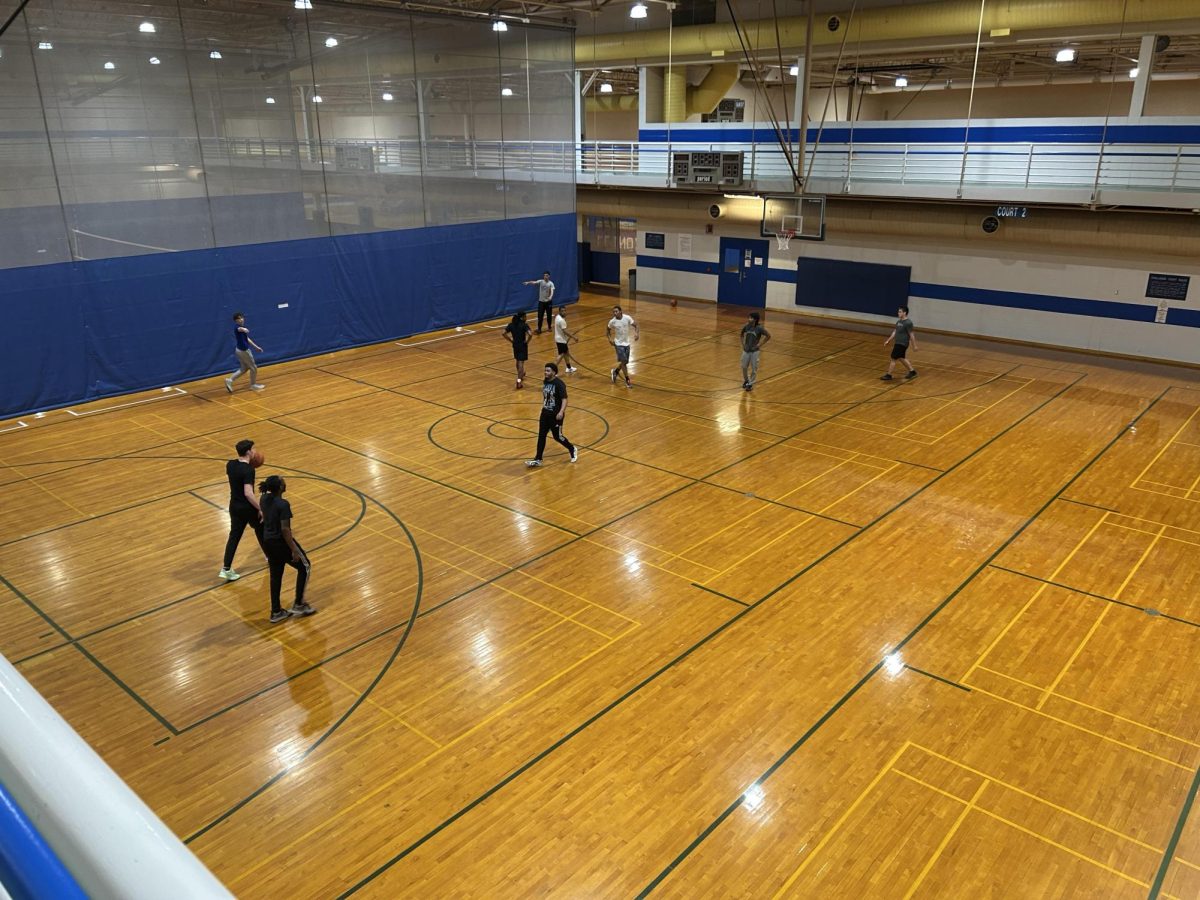

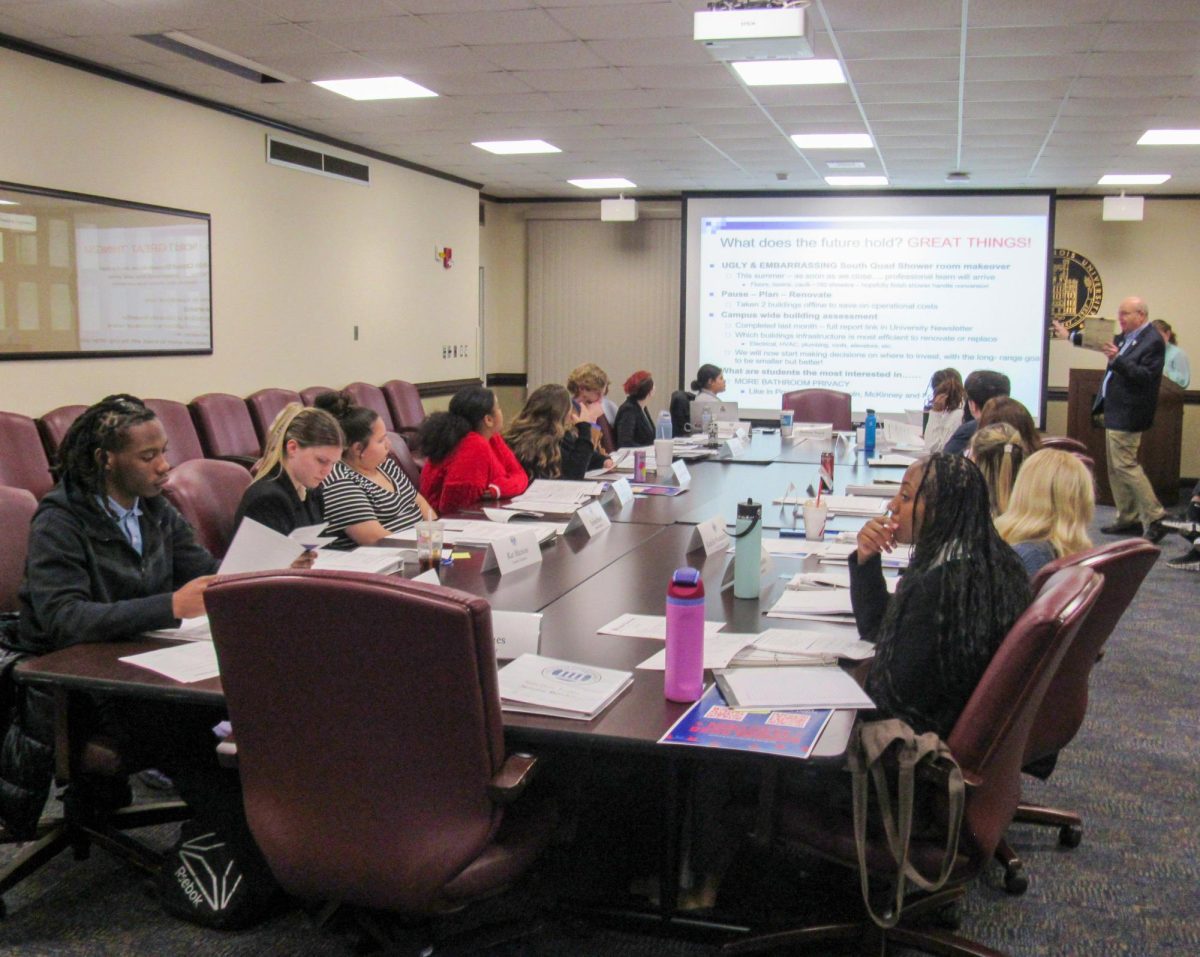
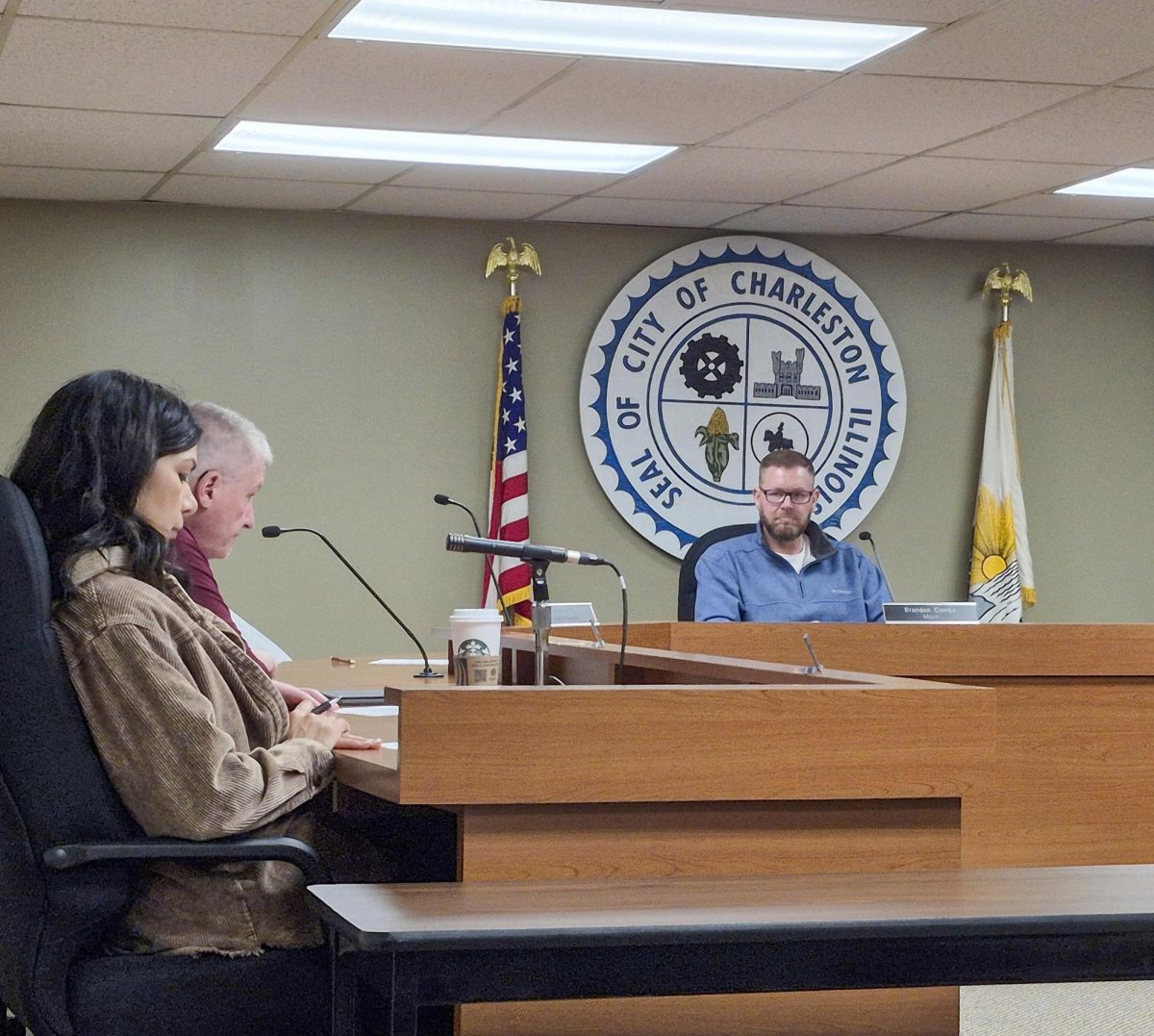
![[Thumbnail Edition] Senior right-handed pitcher Tyler Conklin pitching in the Eastern Illinois University baseball team's intrasquad scrimmage at O'Brien Field in Charleston, Illinois on Jan. 31.](https://www.dailyeasternnews.com/wp-content/uploads/2025/03/TC_01_O-e1741567955534-1200x669.jpg)








![[Thumbnail Edition] Senior, forward Macy McGlone finds an open teammate to pass the ball too during the game against the Tennessee State Tigers 69-49, in Groniger Arena on the Eastern Illinois University campus, Charleston Ill.](https://www.dailyeasternnews.com/wp-content/uploads/2025/03/WBB_02_O-1-e1741228987440-1200x692.jpg)
![[Thumbnail Edition] Eastern senior guard Corey Sawyer Jr bringing the ball up past the half court line during the first half Eastern’s win against Little Rock 71-60 at Groniger Arena on Thursday.](https://www.dailyeasternnews.com/wp-content/uploads/2025/03/MBBLR_04_O-1-e1741139766107-1200x773.jpg)


















![E[Thumbnail Edition] Eastern Illinois softball freshman utility player Abbi Hatton deciding to throw the softball to home plate in a fielding drill during softball practice at the field house in Groniger arena on Tuesday Feb. 11.](https://www.dailyeasternnews.com/wp-content/uploads/2025/03/SB_03_O-e1741208880750-1-e1741209739187-1200x815.jpg)

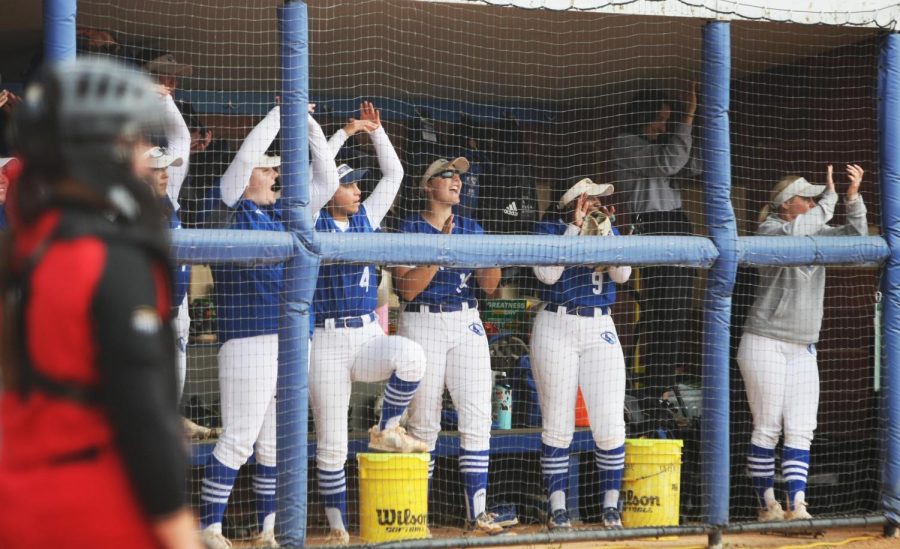












![The team listens as its captain Patience Cox [Number 25] lectures to them about what's appropriate to talk about through practice during "The Wolves" on Thursday, March 6, in the Black Box Theatre in the Doudna Fine Arts Center in Charleston, Ill.](https://www.dailyeasternnews.com/wp-content/uploads/2025/03/WolvesPre-12-1200x800.jpg)



















